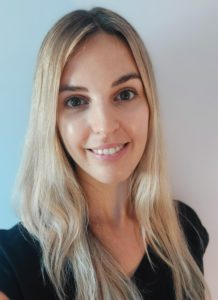
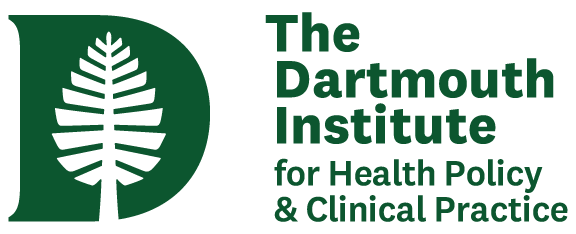

The i-THRIVE Partnership Board holds strategic oversight of the National i-THRIVE Programme. We are very pleased to have leading experts in child mental health from the Anna Freud National Centre for Children and Families, the Tavistock and Portman NHS Foundation Trust, the Dartmouth Institute for Health Policy and Clinical Practice and UCLPartners represented on the board.
Dr Sally Hodges
Sally Hodges chairs the i-THRIVE Partnership Board and is the Executive Director responsible for the delivery of the clinical services at the Tavistock and Portman NHS Foundation Trust. Sally is a Consultant Clinical Psychologist and has been working with the Tavistock & Portman NHS FT since 1996.
Sally is driven by the need to ensure access to timely, good quality clinical services to the widest range of people possible. Her role at Tavistock Centre is to oversee the clinical services, ensuring they are clearly accountable to the communities in which we serve as well as to our board. She strongly believes that services should be designed together with those who use them, using data, experience and outcomes to ensure services are doing what is needed, where it is needed to all the communities that need access.
Sally is the Exec sponsor for the Tavistock & Portman Race Equity staff network and is committed to ensuring equality across staff and patient services, with the ultimate aim of services being genuinely driven by population health needs, and properly taking into account the social determinants of health.
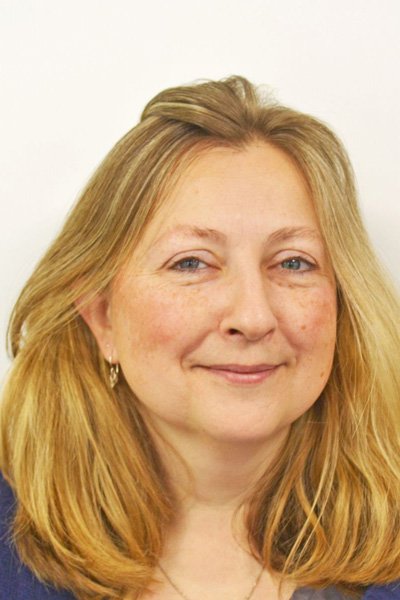
Professor Peter Fonagy OBE FMedSci FBA PhD
Peter is currently: Head of the Research Department of Clinical, Educational and Health Psychology at University College London; Chief Executive of the Anna Freud National Centre for Children and Families, London; Consultant to the Child and Family Programme at the Menninger Department of Psychiatry and Behavioural Sciences at Baylor College of Medicine; and holds visiting professorships at Yale and Harvard Medical Schools. He is Programme Director of the UCLPartners Integrated Mental Health programme and a member of the UCLPartners Academic Board, National Clinical Lead of the Department of Health/NHS England Children and Young People’s Improving Access to Psychological Therapies (CYP IAPT) programme, and a member of the Programme Board for IAPT. He is leader of the Mental Health theme in the North Thames CLAHRC and a Senior Investigator for the National Institute of Health Research. He has occupied a number of key national leadership positions including Chair of the Outcomes Measurement Reference Group at the Department of Health, Chair of two NICE Guideline Development Groups, and Chair of the Strategy Group for National Occupational Standards for Psychological Therapies.
His clinical interests centre on issues of early attachment relationships, social cognition, borderline personality disorder and violence. A major focus of Professor Fonagy’s contribution has been an innovative research-based dynamic therapeutic approach, called Mentalization-Based Treatment, which was developed in collaboration with a number of clinical sites both in this country and in the US. He is currently Principal Investigator (PI) or Co-PI on research grants worth in excess of £15 million. He has published over 400 scientific papers, 250 chapters and has authored or co-authored 17 books. He is a Fellow of the British Academy, the Academy of Medical Sciences, and the American Association for Psychological Science, and was elected to Honorary Fellowship by the American College of Psychiatrists. He has received Lifetime Achievement Awards from several national and international professional associations including the British Psychological Society and the World Association for Infant Mental Health.

Professor Albert Mulley, MD, MPP
Al Mulley is Professor of Medicine and of Health Policy and Clinical Practice and founding Director of the Center for Health Care Delivery Science at Dartmouth.
Before assuming his current role at Dartmouth, Al served on the faculty at Harvard and Massachusetts General Hospital where he was founding Chief of General Medicine with responsibility for research, education and training, and design and implementation of new care models. His research has focused on practice variation, the quality of medical decision making, and implications for commissioning of services. He has published more than 100 research articles and commentaries as well as Primary Care Medicine, the earliest textbook of its kind now in its 7th edition.
Professor Mulley was an originator of “shared decision making” and other approaches to co-production of value in health care and, together with colleagues in the US and UK, developed and brought to scale measures and tools to support their implementation. He received his undergraduate degree from Dartmouth and degrees in medicine and public policy from Harvard.
In 2011, he served as the first International Visiting Fellow at the King’s Fund and was appointed to The Health Foundation’s Improvement Science Development Group. He also serves as an Adjunct Professor at the Tsinghua Institute for Hospital Research Management and Advisor to the Chinese Hospital Association. In 2015, he was appointed visiting professor at UCL. He is a member of the National Academy of Medicine of the National Academy of Sciences.

Dr Rachel James
Rachel is a co-author of the THRIVE Framework for system change (Wolpert et al., 2019) and the Clinical and Programme Director for the National i-THRIVE Programme, involved in supporting the national implementation of the THRIVE Framework.
Rachel is the Clinical Services Director at The Tavistock and Portman NHS Foundation Trust and a Consultant Clinical Psychologist, with over 25 years’ experience working with children, young people and their families across the health, social care, education and voluntary sectors, and she has led community, specialist and multi-agency child and adolescent mental health teams within the UK.
Rachel is committed to developing and delivering high-quality services that are evidence-informed, prevent and promote emotional health and wellbeing, and empower children, young people and their families to be actively involved in decisions about their care through shared decision making. Rachel integrates her learning from a UCLPartners Improvement Fellowship into developing ways to embed quality improvement within everyday practice to effect meaningful and sustainable change across systems.
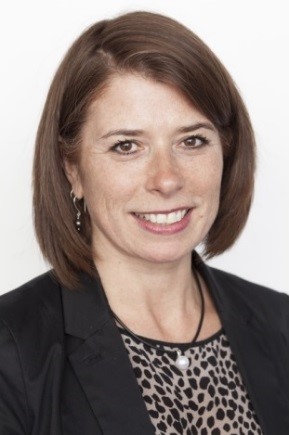
Rose McCarthy
Rose is a Senior Organisational Consultant within National i-THRIVE Programme and is responsible for coordinating the programme of training nationally. Rose is the lead for delivering the i-THRIVE Academy modules to localities across the UK and can develop bespoke packages of training to suit each locality’s needs.
Rose holds a BA Hons in Psychology, an MA in Social Work and she is also a trained Video-feedback intervention to promote positive parenting and sensitive discipline (VIPP-SD) practitioner with the Tavistock and Portman NHS Foundation Trust.
Rose’s background is in social care and she has over 15 years of experience working with children in need of protection and supporting children at every stage through their adoption journey. Rose has extensive experience of training and assessing prospective adopters and is passionate about improving outcomes for children, young people and their families.

Dr Anna Moore
Anna is Assistant Professor of Child Psychiatry and Medical informatics at the University of Cambridge, Consultant in Paediatric Psychological Medicine and Lead for the i-THRIVE Evaluation. She is also a Senior Research Fellow at Anna Freud. Anna’s work aims to improve CAMHS services through the development and evaluation of digitally enabled novel personalised preventative pathways. To support this, she undertakes research into the development of early identification tools, is building supporting informatics infrastructure and is leading the NIHR BioResource’s D-CYPHR program which aims to create a research resource for child health enabling genomic research. https://bioresource.nihr.ac.uk/dcyphr/
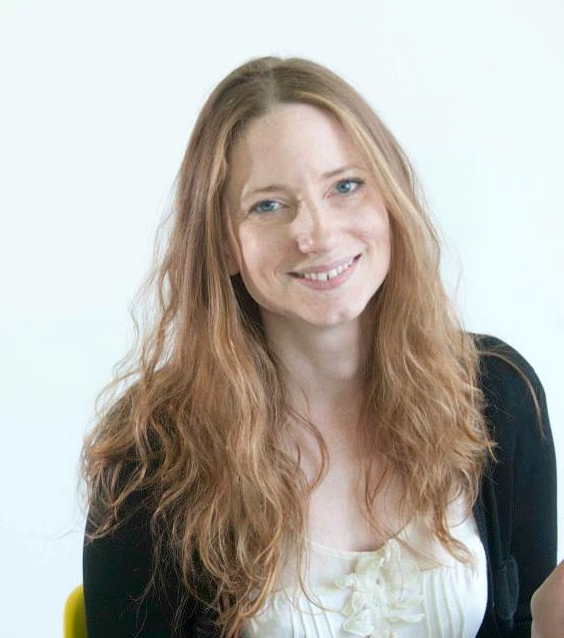
Dr Paul Wallis
Qualifying from University College London 25 years ago, Paul has worked as a Clinical Psychologist, across a range of community and specialist CAMHS settings. For the past 12 years he has been Director of Psychological Services for CAMHS in Manchester University NHS Foundation Trust. Paul is also a Clinical Advisor with the Greater Manchester ICS, and GM lead for the roll-out of GM i-THRIVE and developing the CAMHS workforce. Paul has been involved in a range of CAMHS innovations in research and service development, including as past-chair of the BPS National Faculty for Child Clinical Psychologists, and contributing to regional and national developments in CYP-IAPT and i-THRIVE.

Angela Daniel
Angela is the Greater Manchester (GM) i-THRIVE and CAMHS workforce programme manager. Angela has a BA Hons in Sports Rehabilitation and has qualified as MSP practitioner in Programme Management, registered practitioner in APMG Change Management and Agile project management. Angela has worked in Local Authority children’s services for over 10 years, then in Public Health as a sector led improvement (SLI) project manager where she set up a multi-agency SLI event on infant mortality across the North West. As the GM Health and Social Care Partnership emerged with devolution Angela worked on the GM early years programme before taking on the implementation of THRIVE across GM. Angela is passionate about improving outcomes for our children and young people and the importance of integrated working and building relationships in complex systems.

Dr Peter Fuggle
Since 1984, Peter worked as a clinical psychologist in services for children with a range of different needs including disability, paediatrics and in child mental health services. From 1995-2014, he was the Clinical Director of the Child and Adolescent Mental Health Service (CAMHS) in Islington where we developed a community based model of service which provided a service in early years, schools and social services. In 2014, he became Clinical Director at the Anna Freud Centre and was part of the leadership team which was responsible for the rapid expansion of the organisation. During this period, he was joint Lead at UCL for the CYP-IAPT National Programme and was part of the national team which developed new wellbeing practitioners working in the community and in schools. His main clinical interest has been in developing ways of helping children who do not seek help themselves; this latter area of work providing the platform for his collaboration with Dickon Bevington in creating the AMBIT Project. This interest also resulted in his involvement as one of the authors of Thrive Programme for which he continues to play an active role. In 2021, he stepped down as Clinical Director at the Anna Freud Centre in order to focus his work on the AMBIT programme and community based projects.

Rachel Surtees
Rachel Surtees has been working in health and local government in ‘strategy and change’ roles for over 15 years. Rachel is currently the Director of Implementation at UCLPartners, a health innovation partnership that works to apply research and innovation to tackling some of the biggest health challenges. Rachel leads delivery of two of UCLPartners’s strategic priority areas: the climate collaborative that is focused on acceleration of de-carbonisation of the NHS, and their adolescent mental health programme that puts youth-led change at the heart of prevention-based care.
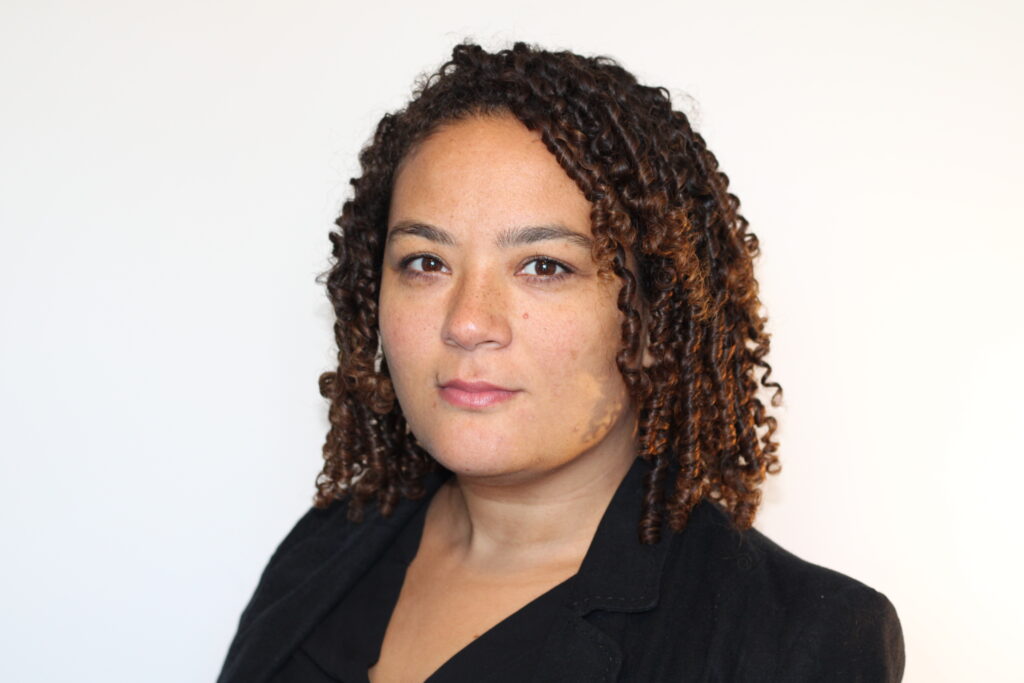
Lynsey Shevlin
Lynsey has worked as an Implementation Manager at UCLPartners for over two years, building on a background in healthcare regulation. Since the start of 2023, Lynsey has worked on implementing THRIVE across North Central London and has co-ordinated workshops and sessions to co-author a report to enable adoption. Lynsey is passionate about improving children and young people’s mental health and establishing continued integration of the THRIVE Framework within the newly formed ICS, as well as seeking innovations that meet children and young people’s existing and evolving needs and working with partners across UCLPartners geography and colleagues within the national health innovation partnership.

Sophie Dunn
Sophie is an Assistant Psychologist within the National i-THRIVE Programme and Associate Quality Improvement (QI) Lead within The Tavistock and Portman NHS Foundation Trust. She also works part-time in a specialist psychoanalytic mother-baby playgroup for refugee and asylum-seeking families.
Sophie studied an MSC in Psychoanalytic Developmental Psychology at the Anna Freud Centre, in collaboration with University College London (UCL). Sophie has experience working across a range of settings, working as a youth and community participation worker and support worker in a residential home for individuals with autism, learning difficulties and mental health problems.
Within her Assistant Psychologist role, Sophie will assist with the implementation of the THRIVE Framework, including facilitating the delivery of workshops and events across multi-agency sites. She is passionate about improving the quality and accessibility of person-centred and needs-focussed care, in order to improve outcomes for children, young people and their families.
As Associate QI lead, Sophie is supporting several QI projects across the Tavistock and Portman NHS Foundation Trust and is also involved in delivering QI workshops to sites nationally to support implementation of the THRIVE Framework, embedding a culture of continuous improvement.
